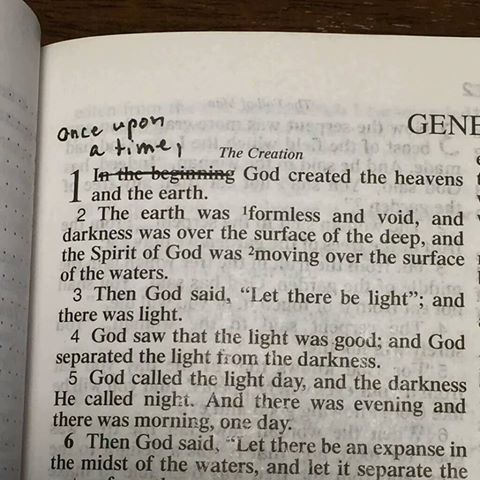I am delighted to have Kyle Greenwood as my guest on the latest episode of the ReligionProf Podcast. Most recently, he is the editor of Since the Beginning: Interpreting Genesis 1 and 2 Through the Ages. This is a multi-author edited volume tracing the impact and interpretation of these stories from ancient Israel until after Darwin. I previously reviewed Kyle’s book Scripture and Cosmology and also on another occasion linked to a review of the same book by someone else.
One topic that I think is pretty crucial to the discussion of how we teach science, and how we teach churches to engage with the results of scientific research, is the balancing act between the importance and legitimacy of academic consensus on the one hand, and the need to be open to whistleblowers and disruptive voices on the other. It is surely true that, in any field or institution, it is at least in theory possible that serious problems exist that are being swept under the carpet. We know that there can be severe shortcomings and even illegalities with regard to behavior, to say nothing of mere methodological problems or ideological blinkers. And so we need to engage more with the question of how can we tell where, for instance, proponents of Intelligent Design are a minority with a genuinely complaint, or are merely denialists. My point is not to suggest in any way their legitimacy – rather, my point is the importance of reflecting on how we tell, and how we get a wider public to be able to tell as well.
Also on this topic elsewhere on blogs and in periodicals:
The Jesus Creed blog here on Patheos has continued to explore many aspects of the intersection of science and Christian faith. Libby Anne on her Patheos blog has continued to point out problems with young-earth creationist claims. Zach Christensen blogged about the “real story behind Genesis.”
Nashville Public Radio drew attention to a Baptist church that is teaching its young people to love science. Mike Bird highlighted some new books about religion and science.
Science and Belief explored whether the origin of life is probable or improbable. Skeptic asked similar questions about intelligent life.
Jim Kidder interacted with an article in Forbes about Intelligent Design, quoting Suzanne Sadedin who wrote:
[W]hen people say they believe in intelligent design, what they are usually claiming is that biology requires an intelligent designer. This goes beyond the claim that current evolutionary theory is inadequate to explain everything in biology (which any biologist could agree with). It is the claim that there can never be an adequate theory of biology without an intelligent designer.
This claim irritates biologists. But not because we are all hyper-aggressive New Atheists (we’re not). It’s irritating because the fundamental purpose of science is prediction. If adding an extra element to a scientific theory doesn’t improve its predictive power, we leave that element out. Thus, until intelligent design advocates can demonstrate that adding an intelligent designer to the theory of evolution improves our predictions, biologists will go on leaving the intelligent designer out.
Lorence Collins shared an article about biological evidence against young-earth creationists’ worldwide flood claims. BioLogos presented four unhelpful metaphors for evolution as well as four helpful ones. They also highlighted five recent books about science and Christianity, and the fact that God can be viewed as Creator regardless whether there is one universe or many.
For another possible view of the universe, see Jon White’s musings on whether the universe might be self-aware. See too the recent study challenging a popular view of the universe’s origin, and NPR’s piece on science, myth, and human exploration of the origin of all things.














